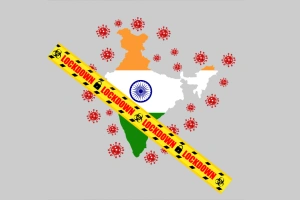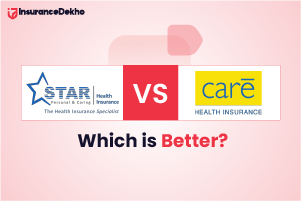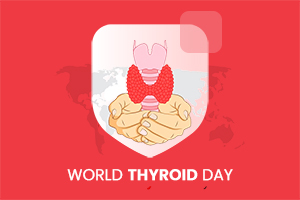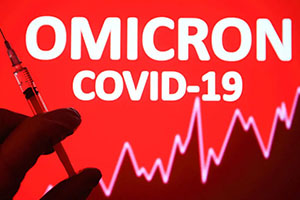

- Tax BenefitUp to 75000**
- Claim SupportEveryday 10AM-7PM
- 45 Lacs+Happy Customers
*Standard Terms and Conditions Apply.
**Tax benefits are subject to changes in Income Tax Act.
Search Nearest Network Hospital
In today’s time when the demand for health policies have increased manifold, the insurance companies are doing their best to choose the best network hospitals for their policyholders. Only after thorough background checks, efficiency, and expertise of medical services offered at the different network hospitals does any insurance company select the network hospitals. Even after the selection is done, the insurance company renews their lists of network hospitals from time to time based on the quality of services they provide to the policyholders. This means that the tie-ups will not be renewed if the network hospital does not offer quality treatment.
The added advantage of a network hospital selected by the health insurance companies is to offer cashless treatment to the policyholders. Cashless treatment can be availed for up to the sum insured limit and as per the terms and conditions of the policy.
How Do Network Hospitals Work?
The insurance companies select the network hospitals based on thorough background checks, efficiency, and expertise of medical services offered. They renew their lists of network hospitals from time to time based on the quality of services they provide to the policyholders. This means that the tie-ups will not be renewed if the network hospital does not offer quality treatment.
The network hospitals selected by the health insurance companies offer cashless treatment to the policyholders. Cashless treatment can be availed for up to the sum insured limit and as per the terms and conditions of the policy.
Difference Between a Network Hospital And a Non-Network Hospital
Let us understand the difference between getting admitted in a network hospital and a non-network hospital and how it affects you, with the help of an example:
Scenario 1: Mr. Ram is unwell and has been hospitalised in a network hospital nearby his place of residence. But he does not have a cashless insurance facility. In this case, he can avail the required treatment at the hospital including costs related to the medical tests. He can then settle the bills out of his own pocket at the hospital. After Mr. Ram gets discharged, he will be required to submit a claim along with the required documents to the insurance company. The insurer, after verifying the documents, will approve the claim and Mr. Ram will get the amount spent on the treatment.
Scenario 2: Mr. Ram is unwell and has been admitted to a network hospital. He has the facility to avail cashless treatment at the network hospital. In this case, Mr. Ram need not spend the money out of his own pocket for anything as the Third Party Administrator (TPA) will help him or his family members avail the cashless treatment. At the time of discharge from the network hospital, Mr. Ram will have to take the documents related to the treatment from the concerned authority in order to keep record. He can then make a claim and the insurer will settle the medical bills directly at the hospital. Note that only the expenses covered in the policy will be paid for.
Scenario 3: Mr. Ram is unwell and has been admitted in a non-network hospital. In this case, the insurance company will not cover him for the treatment as it is being availed in a non-network hospital. Hence, Mr. Ram needs to pay for the treatment out of his own pocket. Later, he can make a claim for reimbursement after submitting all the required documents and the company, after verification, will pay him for the treatment.
As the insurance company will verify the documents and only then reimburse the amount spent on the treatment, there are chances that the claim could get rejected. This may be due to the reason that the insurer finds the medical expenses to be greater than standard. In this case, the insurer might also just reimburse the amount that he finds reasonable. All in all, it can be said that a non-network hospital should only be an option in case of non-avoidable emergencies only.
Let us understand the role of network hospitals in two conditions:
1. Planned Hospitalization
In the case of planned hospitalization in a network hospital, you will be required to fill a pre-authorization form. Followed by which you have to submit it at the insurance desk of the hospital and wait for it to get approved or rejected. If it gets approved, then the Third Party Administrator or TPA (the service provider with which your insurer has partnered) or the in-house staff of the insurer will sanction a letter to the hospital and the hospital can start with the treatment.
2. Emergency Hospitalization
In case of emergency hospitalization, the same process of filling the pre-authorization form and getting the Third Party Administrator’s approval is carried out. The TPA likewise has to accept or reject a claim within 6 hours so that the treatment is started at the earliest. In case you do not have time, you can pay in cash and seek reimbursement later from the insurance company.
Whether it is cashless or reimbursement, it is the sole responsibility of the insurer’s representative or a Third Party Administrator to coordinate with the network hospital and settle all the claims. They communicate it with the patient, the hospital, and the insurance company to process the request.
Moreover, please note that the non-network hospitals or the hospitals which are not listed as network hospitals by the insurance companies do not in any case offer cashless treatment. To avail treatment in such hospitals, you need to pay first out of your own pocket and can request for reimbursement later.
Advantage of Network Hospitals
At network hospitals, you don’t need to pay even a single penny out of your pocket to the hospital. The best part about network hospitals is that you can get good quality treatment such that the entire process becomes less worrisome.
Whereas in the case of non-network hospitals, you have to pay the entire amount out of your own pocket and make requests for reimbursement later. Your request only gets approved if the insurance company finds it reasonable. This means, there is a risk involved in that case. While purchasing a health insurance plan, make sure you choose a policy with the most number of network hospitals near you.
Let’s give us a call at our toll-free 7551196989 to know the number of network hospitals of a particular insurance company or compare different policies and get the best quote. At InsuranceDekho, we can also provide you with assistance after the health insurance is purchased.
Things to Keep in Mind When Availing Cashless Treatment at Network Hospital
For anyone with a cashless mediclaim policy, a network hospital provides the best options for cashless treatment. However, you need to be prepared in advance in order to get the desired treatment in a smooth manner. Firstly, you can get the list of network hospitals beforehand so that in case of sudden hospitalisation, you do not waste time in finding them. When choosing the right network hospital to avail treatment, you must look for prices, quality, and services offered by the network hospital. It is recommended to select a network hospital that is nearby your place so that time is not wasted to take the patient to the hospital in case of an emergency.
Cashless mediclaim plans are affordable and offer you easy access to healthcare. With a pan India presence, you can avail cashless treatment at any network hospital of your choice. Thus, with the help of network hospitals, you can not only avoid hassles by opting for the best treatment, but also keep stress at bay even when things get tough.
Health Insurance Calculator
Whom do you want the insurance for ?
Where do you live ?
Choose required Coverage for yourself?
Buy Coronavirus Health Insurance Policy
Health Insurance Network Hospital
 Niva Bupa Health Insurance
Niva Bupa Health Insurance Care Health Insurance
Care Health Insurance Magma Health Insurance
Magma Health Insurance New India Assurance Health Insurance
New India Assurance Health Insurance IFFCO Tokio Health Insurance
IFFCO Tokio Health Insurance Future Generali Health Insurance
Future Generali Health Insurance Digit Health Insurance
Digit Health Insurance SBI Health Insurance
SBI Health Insurance Bharti AXA (now ICICI Lombard) Health Insurance
Bharti AXA (now ICICI Lombard) Health Insurance Reliance Health Insurance
Reliance Health Insurance Tata AIG Health Insurance
Tata AIG Health Insurance Navi Health Insurance
Navi Health Insurance Bajaj General Health Insurance
Bajaj General Health Insurance ICICI Lombard Health Insurance
ICICI Lombard Health Insurance Aditya Birla Health Insurance
Aditya Birla Health Insurance Raheja QBE Health Insurance
Raheja QBE Health Insurance Universal Sompo Health Insurance
Universal Sompo Health Insurance Royal Sundaram Health Insurance
Royal Sundaram Health Insurance Zuno Health Insurance
Zuno Health Insurance HDFC ERGO Health Insurance
HDFC ERGO Health Insurance ManipalCigna Health Insurance
ManipalCigna Health Insurance Star Health Insurance
Star Health Insurance
Disclaimer: InsuranceDekho does not endorse, rate or recommend any particular insurance company or insurance plan.

*Tax benefits are subject to changes in Income Tax Act.
Types of Health Insurance Plans
Health Insurance Terminologies
Buy Critical Illness Health Insurance
Learn more about network hospitals Health Insurance
Best Insurance Advisors in Your City.
FAQ About Cashless Network Hospital
-
-
Why do network hospitals play a very important role in health insurance?
Network hospitals make it possible for the insured to avail cashless treatment, which is the essence of a health insurance policy. If the insurance company has a good number of network hospitals near the insured individual’s residence, then he/she can easily avail cashless treatment without any hassle.
-
What are the benefits of preferred network hospitals?
You can avail several benefits on getting medical treatment at a network hospital. These include cashless treatment, easy access to healthcare, and easy cover for healthcare expenses.
-
What is the difference between a network and non network hospital?
Every insurance company offering health insurance has tie ups with hospitals where the insured can avail cashless treatment without paying anything at the hospital. These are known as network hospitals. All the hospitals other than the ones in this network are known as non-network hospitals, where the insured can only avail reimbursement treatment.
-
What is the difference between in-network hospitalisation versus non-network hospitalisation?
In case of network hospitalisation, the insured gets admitted in any network hospital by submitting the form to TPA for cashless mediclaim. If the cashless claim request gets approved, then the insured can avail treatment, the expenses of which will be borne by the insurance company. The insured will not be required to submit any bills. However, the insured will be required to only pay for the expenses that are not covered under the health insurance policy. Whereas in case of a non-network hospitalisation, the insured is required to pay for the complete treatment from their own pocket. He/she will be required to timely inform the insurer and submit the required documents within the stipulated time. If the claim gets approved, then the amount will be refunded to the patient.










































.jpg)












